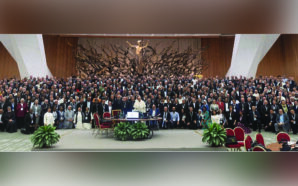The Senate Community Affairs References Committee’s inquiry into the adequacy of Newstart is now under way, with some 70 submissions received. The Committee chair, Senator Rachel Siewert, is by any measure one of the most seasoned and consistent advocates for disadvantaged Australians. As formidable a campaigner as she is, her committee is facing an enormous task in convincing the Government to lift the level of Newstart, regardless of the evidence presented.
The “Raise the Rate” campaign run by the Australian Council of Social Service – and supported by the sector – is seeking a $75 per week lift to the single Newstart rate. Senator Siewert’s party, the Greens, have publicly supported a $75 increase. Labor supports a lift, but is not committing to a specific rate.
Others supporting an increase to Newstart include the Business Council of Australia, the Australian Local Government Association, the ACTU and the Reserve Bank of Australia. Current and former Liberal and National MPs have also declared support for an increase to Newstart, with the likes of former Prime Minister John Howard and former Nationals leader Barnaby Joyce acknowledging that the current rate is too low.
The Government, however, has been determined to hose down any hope for an increase. And in doing so, it has embarked on a deliberate media strategy that seeks to cast doubt on the need for and legitimacy of a lift to the Newstart rate.
Senator Eric Abetz came out early to claim increasing Newstart is unaffordable. Senator Michaelia Cash soon followed with some dubious statistics on compliance breaches by Newstart recipients, with Treasurer Josh Frydenberg chiming in with an inference that Newstart recipients are doing better financially than we all think.
Senator Anne Ruston, the Minister for Social Services, has doubled down on the Government’s opposition to increasing Newstart. She reportedly told a forum in Murray Bridge that “Giving (people) more money would do absolutely nothing … probably all it would do is give drug dealers more money and give pubs more money.”
To perpetuate a cruel and demeaning characterisation of people on Newstart says volumes about the extent that the Minister will go to avoid proper engagement on resolving the issue of poverty and disadvantage in Australia.
In March 2019, the Melbourne Institute published its quarterly update Poverty Lines. It shows that a single person on Newstart receives total income of $347.40 per week (inclusive of rental assistance), while the poverty line for this cohort is $529.57 per week – a shortfall of $182 per week.
In 2017, the UNSW’s Social Policy Research Centre (SPRC) published its Minimum Income for Healthy Living budget standard, on which Catholic Social Services Australia, ACOSS and United Voice were partners. The budgets standards were constructed across eight broad areas: Food; Clothing and Footwear; Household Goods and Services; Transport; Health; Personal Care; Recreation; and Education.
The results of the SPRC analysis showed that a single person on Newstart was some $96 per week below what is necessary to meet the budget standards.
Despite the variance in quantum between different analyses, the reality for all to see is that Newstart is patently inadequate.
At a parliamentary committee hearing, Alicia Payne, the new member for Canberra, asked Reserve Bank Governor Philip Lowe whether he thought an increase to the Newstart allowance or tax relief to people on higher incomes would be more effective in stimulating household spending. Mr Lowe told the committee that “in the short run, I think you get more stimulus from giving money to people who have a high propensity to spend that money, and that’s obviously lower-income people”.
Mr Lowe, like others, understands that an increase to Newstart would lift consumer spending and therefore stimulate economic activity at a time when Australia’s domestic economy is in need of a boost.
In its 2016 report Solving the Structural Deficit, KPMG argued that increasing Newstart was critical because the payment level was a barrier to employment, as well as an inhibitor to people changing jobs because of the financial risk to them should they be required to live on Newstart.
In essence, the current level of Newstart is a productivity handbrake that we cannot afford.
The economic argument for lifting Newstart is strong, the moral case is clear and yet we still have the Government unwilling to countenance a rise in the payment. Despite countless anecdotes from providers such as the Salvation Army and Catholic social services, the plight of those having to survive on Newstart seems to matter little to those who decide whether the Newstart allowance is lifted.
In the current environment, evidence may have little to do with the decision to lift Newstart. Lifting Newstart, like other social issues, is locked up in a world of political imperatives and ideology, none of which do well for minorities – and be sure that the unemployed on Newstart are a minority. Only about 4 per cent of the voting public are on Newstart.
In the business of social policy advocacy, what matters are facts, empathy and understanding of the issues at hand. The challenge for advocates seeking to lift the rate of Newstart is to create greater empathy, understanding and connection between decision-makers and those people dealing with the complexities of living on an inadequate level of Newstart.
One need reflect only on the outpouring of support for the Tamil family from the Queensland town of Biloela to see that Australians will connect with issues if the cause is just.
As advocates for improving the lives of poor and vulnerable people, we have a duty to engage the issue of income adequacy and Newstart in ways that resonate with those who need to be convinced that a change is not only desirable, but essential. Our challenge is to make the case for change to “everyday” Australians and to ensure Minister Ruston’s stereotype of a Newstart recipient is called out for what it is.
Joe Zabar is deputy CEO and director of economic policy at Catholic Social Services Australia.
With thanks to ACBC.








